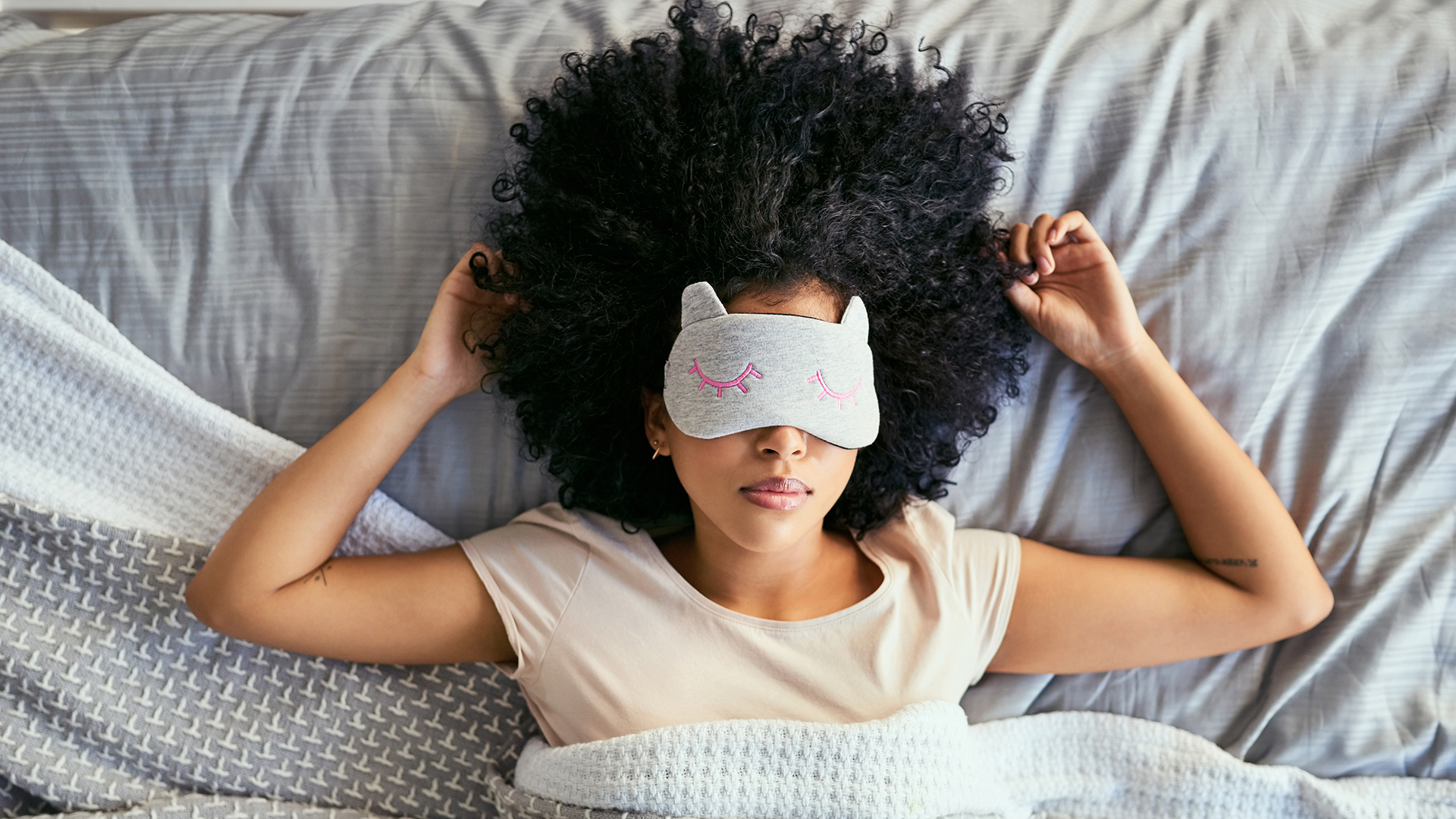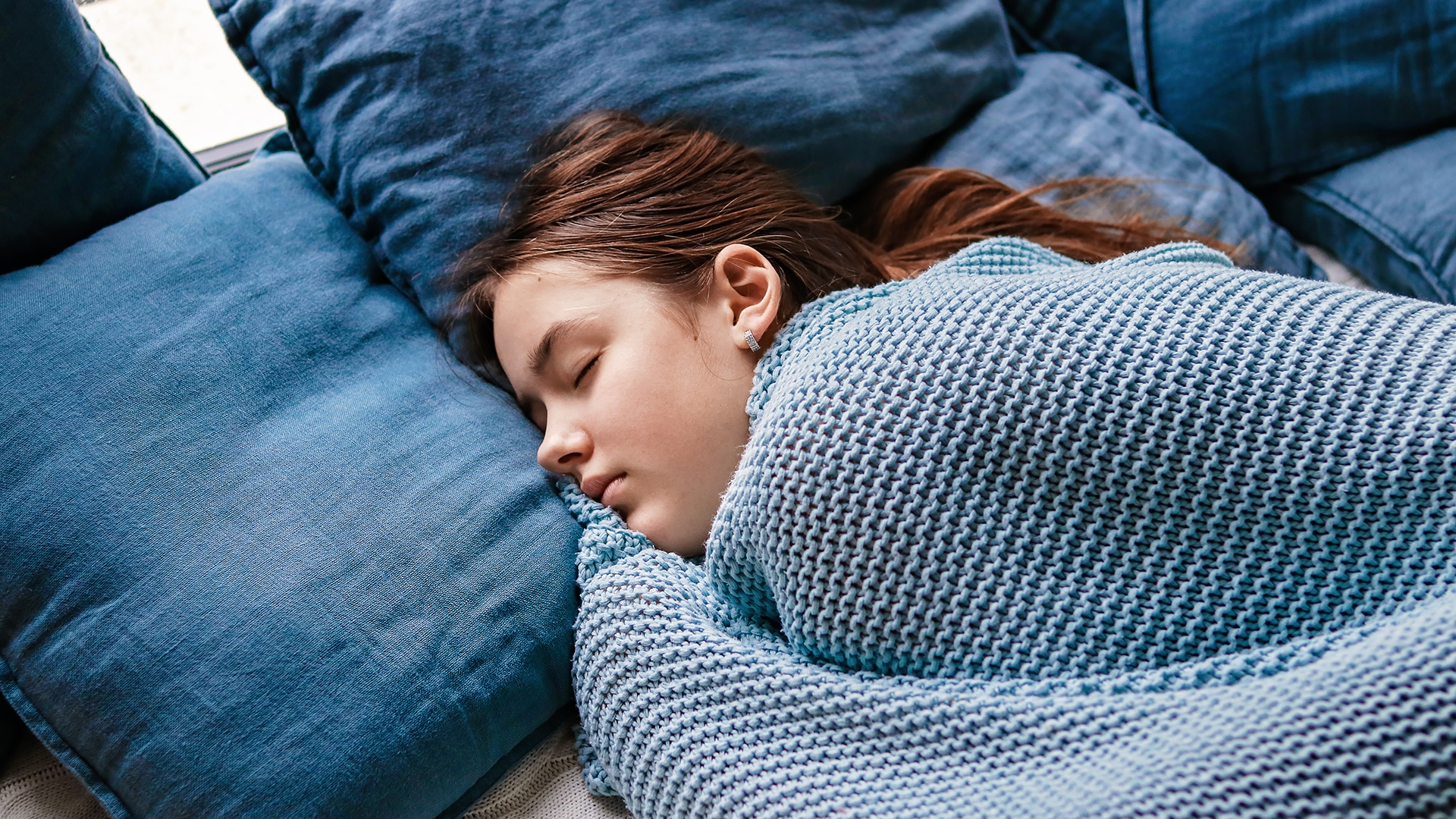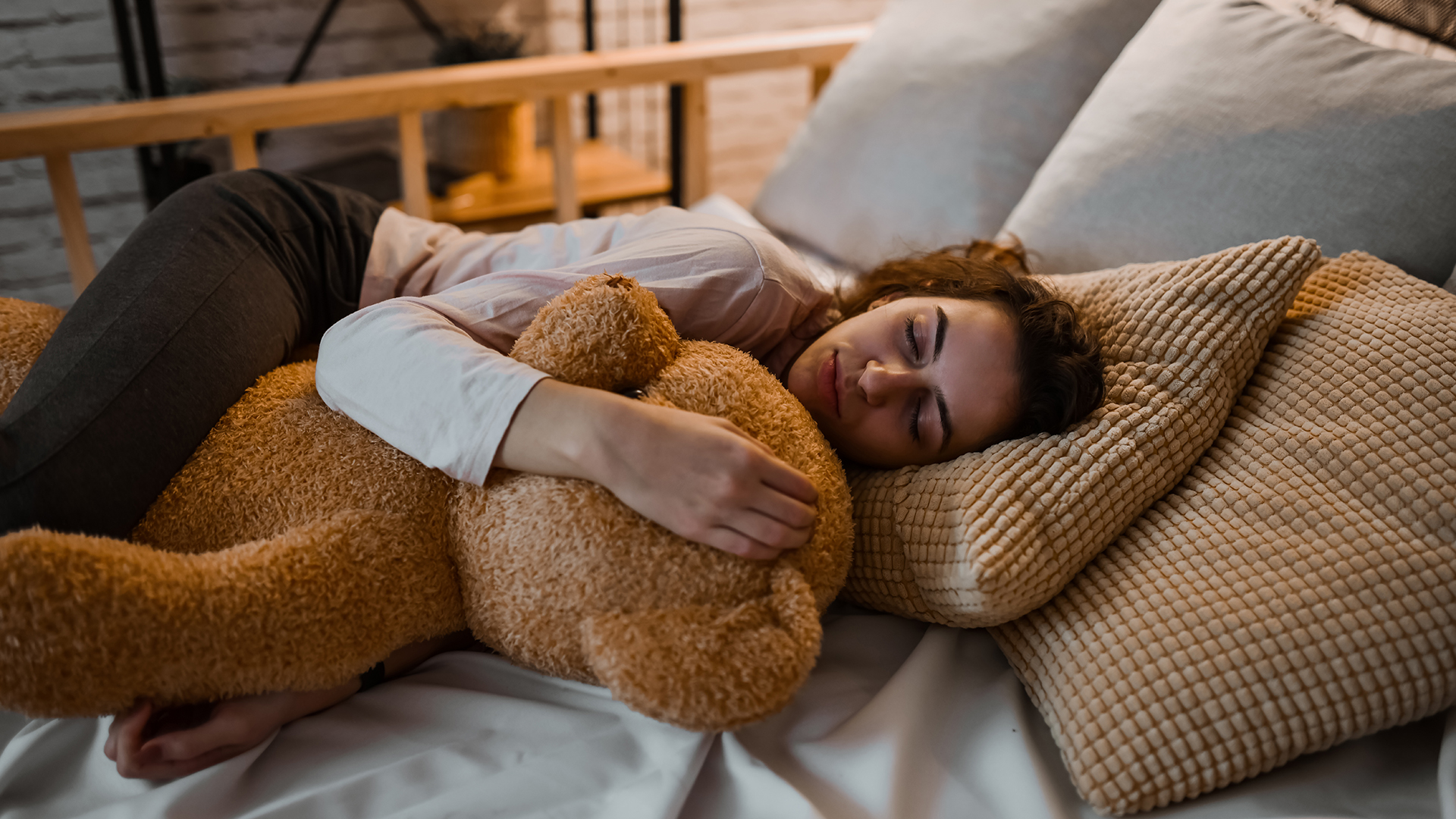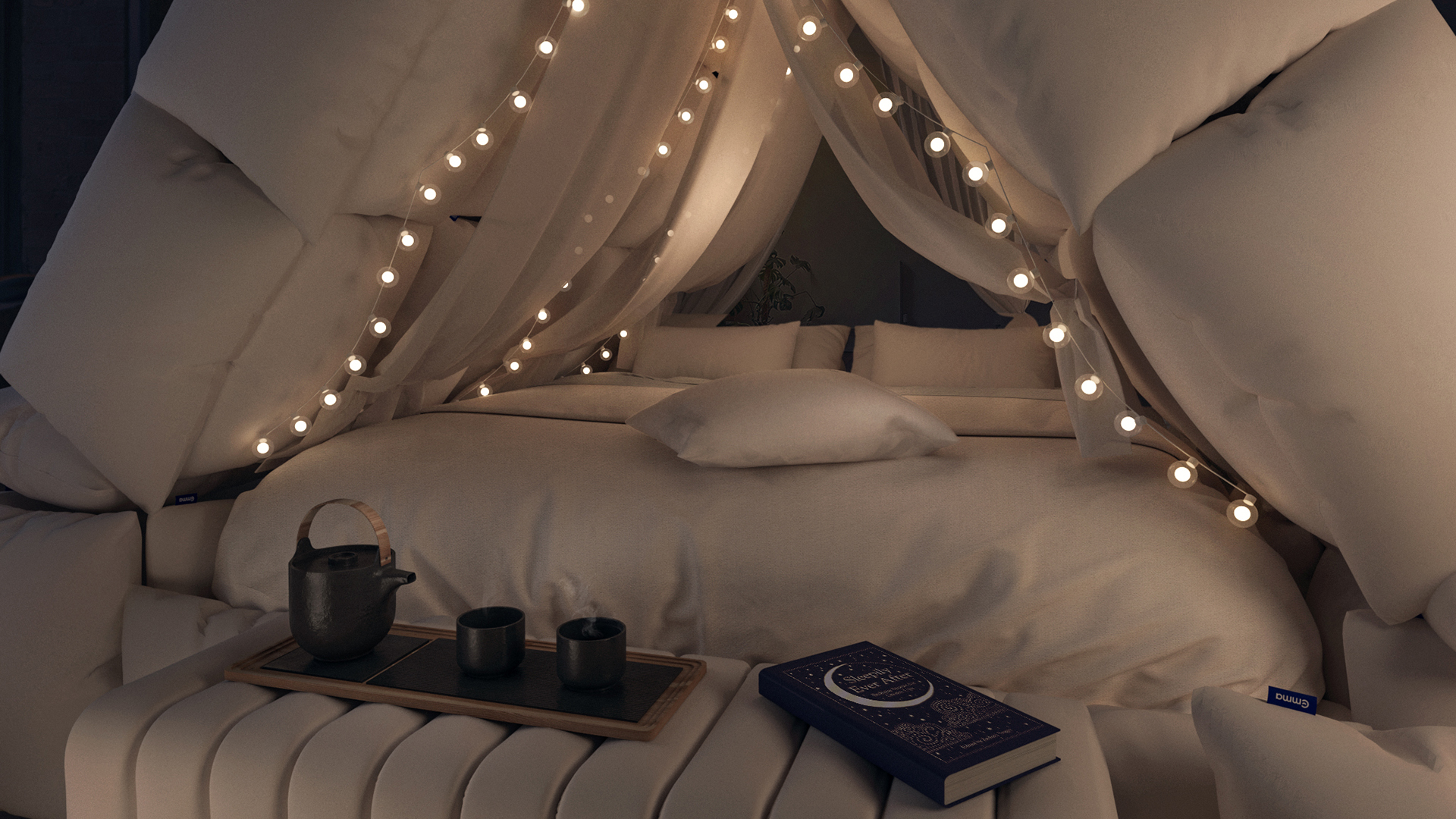Spending the holidays in your old bedroom? Returning to your childhood routine might help you sleep
Find you sleep better when you return to you childhood home? Nostalgia might be the reason

Nostalgia is a big trend right now; just ask anyone wearing low-rise noughties jeans. And it turns out that indulging in nostalgia isn’t just about refreshing your wardrobe. According to experts, going back to your childhood bedtime routine, both physically and mentally, might be a good method for improving your sleep. If you’re struggling to drift off, and even the best mattress can’t help, a hit of nostalgia could be the key to better sleep.
“We’ve seen from our research that nostalgia typically involves positive emotions and feelings of warmth, happiness, and comfort associated with past experiences,” says Theresa Schnorbach, the leading Sleep Expert at mattress brand Emma Sleep. Studies have shown that it’s these feelings of comfort, brought on by nostalgia, that might induce a more restful sleep in adults.
Why might childhood nostalgia improve sleep?
Returning to a happy memory from childhood can invoke feelings of nostalgia, which in turn can have a positive impact on your wellbeing. As Theresa Schnorbach notes, “nostalgia possesses the extraordinary (and scientifically-proven) power to elevate our mood, reduce stress, enhance social bonds, and elevate the quality of our sleep.”
We might not have always relished the bedtime routine as kids, but as adults, we tend to view it a little differently. Instead of being a trial our parents put us through, it now brings feelings of happiness and contentment.
Research conducted by Emma Sleep uncovered that 62% of people in the UK found nostalgia beneficial to their wellbeing. By returning to the nostalgic childhood bedtime routine, we might be able to bring these happy feelings to bed with us. So how can you use nostalgia to achieve a better night’s rest?

1. Create a relaxing routine
As children, our routine was typically dictated by our parents. They told us when to brush our teeth, put our pajamas on, and turn the lights out. As adults, we’re in charge of getting ourselves to bed; and we aren’t always very good at it.
However, creating a bedtime routine is an important part of achieving better sleep. Research has shown that an optimal bedtime routine can help children sleep better and perform better the next day. And it's not just the kids that can benefit from a consistent wind-down routine, either. For adults, a simple bedtime routine can help prepare your brain for falling asleep.
Get daily insight, inspiration and deals in your inbox
Sign up for breaking news, reviews, opinion, top tech deals, and more.
Emma Sleep conducted a survey of sleepers in the UK to discover how their childhood routine influenced their current bedtime. The research showed that 16 percent of adults still enjoyed a glass of warm milk and a cookie before bed, while 12 percent had a bedtime story read to them. Consider trading warm milk and cookies for a soothing herbal brew and a handful of melatonin-rich walnuts, with an audiobook for a bedtime story. This is also beneficial if you were wondering how to sleep when stressed.
2. Build a comfortable sleep setup
Over one in 10 participants in the Emma Sleep survey confessed to building a pillow fort to help them relax. Although we’re not entirely sure how many people are constructing actual forts every evening, most of us have, at some point, tucked ourselves up on the sofa with a pile of pillows.

While a pillow fort might not be a realistic option every night, if you want to make the most of a relaxing and nostalgic routine, you need a comfortable sleep setup. Make sure you have the best pillow for your sleep style, not for your fort building. After all, neck ache is rarely a fond childhood memory. A weighted blanket can help recreate that feeling of your parents tucking you beneath the covers when you’re already half asleep.
Emma Sleep also discovered that 23 per cent of participants snuggled up with a stuffed toy at night. If you waved goodbye to toys with childhood, it might be time to reintroduce a stuffed friend to your bed. Research suggests that stuffed toys act as transitional objects for children, providing them comfort during stressful times. And while there’s little research into whether soft toys help reduce anxiety in adults, if you slept with one as a kid, they can potentially induce that contentment we associate with nostalgia.
3. Get lost in happy childhood memories
Now that you’re tucked up in bed, there’s one last role for nostalgia to play. Instead of counting sheep to try and induce slumber, consider returning to one of your favorite childhood memories.
Recalling a beloved childhood memory can lead to those happy feelings we associate with nostalgia. “These positive emotions can counteract negative thoughts or worries that might keep you awake at night, and help you get more and better sleep to awaken your best,” says Theresa Schnorbach.

Can childhood nostalgia actually improve sleep?
According to the team at Emma Sleep: yes. Emma, maker of one of the best memory foam mattresses in the UK, put together a Pillow Fort Hotel experience to test their theories of nostalgia out. They constructed their first Pillow Fort Hotel in 2023, and the experience proved so popular they’re planning on running it again. You can register your interest here, for a chance to spend the night in an adult-sized pillow fort.

Theresa Schnorbach is a psychologist and sleep scientist, specialized in Clinical Psychology and Cognitive Neuropsychology. She has completed post-graduate training in Cognitive Behavioural Therapy for Insomnia (CBT-I) with the German Sleep Society (DGSM), endorsed by the European Research Society. She works as a sleep specialist for bed brand Emma.

Ruth is TechRadar’s Sleep Writer. She’s here to help you find the perfect sleep setup for your budget and personal preferences. As well as keeping a keen eye on everything that’s going on in the world of mattresses, she regularly speaks to experts to help you learn how to improve your sleep habits, whether that’s by debunking sleep myths or explaining the science behind it all. Prior to joining the TechRadar team, she wrote features and product guides for new parents hoping to get a decent night's sleep, as well as writing for a variety of online spaces.